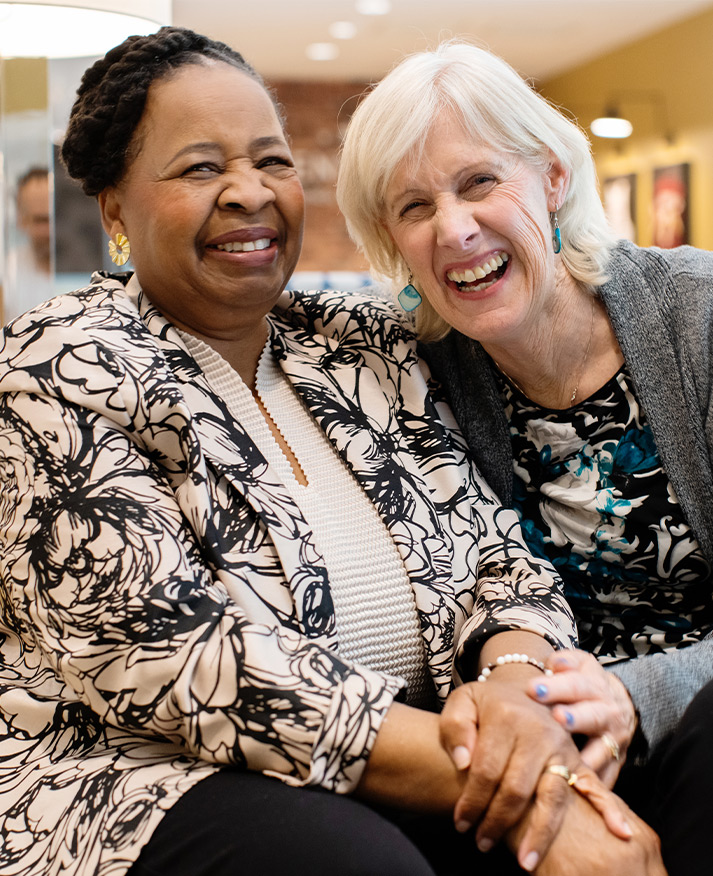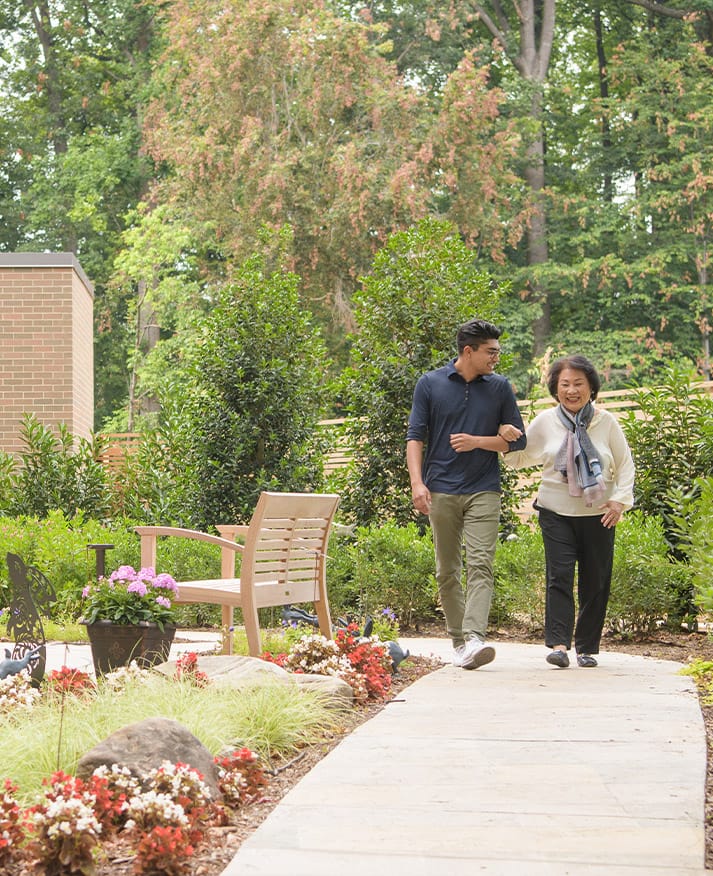Is It Time To Consider Memory Care?
Recognizing the signs that a loved one may need specialized memory care support.
Caring for a family member with dementia or Alzheimer’s disease is a profoundly personal journey filled with love, patience, and challenges. Many families struggle with the decision of when to transition a loved one into a specialized memory care setting. You may wonder whether they are safe at home, whether they are receiving enough support, or if it is time to consider a senior living community.
The decision is never easy, but some signs can indicate when a higher level of care may be necessary. Below are some key indicators that someone with dementia may benefit from the structured support, safety, and engagement that memory care provides.
1. Changes in Behavior Become Unmanageable at Home
Dementia can bring about shifts in personality, mood, and behavior. Agitation, aggression, restlessness, or emotional distress may become more frequent, making it difficult for caregivers to manage these changes safely at home. Someone with dementia may:
- Exhibit increased anxiety, paranoia, or outbursts of frustration;
- Wander or attempt to leave home at odd hours; and
- Resist personal care or display repetitive behaviors.
When behavioral symptoms escalate beyond what can be managed in a home environment, a memory care setting can provide specialized techniques, structured routines, and trained professionals who can provide comfort and reassurance.
2. Confusion and Disorientation Put Their Safety — or Someone Else’s — at Risk
One of the most concerning aspects of dementia is its impact on judgment and spatial awareness. If your loved one becomes increasingly disoriented, they may unknowingly place themselves — or others — in danger. Warning signs include:
- Forgetting to turn off appliances or leaving the stove on;
- Getting lost in familiar places, even within their own home;
- Struggling to recognize family members or caregivers; and
- Difficulty distinguishing between reality and hallucinations.
Memory care communities are specifically designed with safety in mind, offering secure environments, 24/7 supervision, and structured routines that reduce confusion while preserving dignity.
3. A Decline in Physical Health Affects Their Abilities
Dementia doesn’t just affect memory — it also impacts physical well-being. Daily tasks such as eating, bathing, dressing, and mobility may become more difficult as cognitive function declines. You may notice:
- Significant weight loss or dehydration due to forgetting to eat or drink;
- Unexplained bruises from falls or difficulty maintaining balance; and
- Trouble managing medications, leading to missed doses or accidental double-dosing.
Memory care communities offer tailored support for these daily needs, ensuring proper nutrition, medication management, and assistance with personal care in a way that promotes independence wherever possible.
4. Caregiver Burnout Becomes a Concern
Caring for a loved one with dementia is an act of love, but it can also be physically and emotionally exhausting. As needs increase, primary caregivers may feel overwhelmed, experiencing:
- Chronic fatigue, stress, or feelings of isolation;
- Difficulty balancing caregiving with personal responsibilities; and
- A decline in their own health due to the demands of care.
If caregiving is taking a toll on your well-being, it’s not a sign of failure — it’s a sign that additional support is needed. Memory care communities provide a team of compassionate professionals who ensure your family member receives high-quality care while allowing you to focus on maintaining a meaningful relationship.
5. Isolation and Withdrawal From Previously Enjoyed Interests
Decreased social interaction is a significant sign that memory care may be beneficial. As dementia progresses, individuals may withdraw from hobbies, activities, and social connections that once brought them joy. Signs of increasing isolation include:
- A lack of interest in social events, hobbies, or family gatherings;
- Avoiding conversations or struggling to follow along; and
- Spending more time alone and showing signs of depression or disengagement.
Memory care communities offer a vibrant, supportive environment where individuals can reconnect through tailored programs, small-group activities, and familiar routines that bring comfort and purpose.
6. Increased Difficulty With Communication and Comprehension
As dementia progresses, communication becomes more challenging. Your loved one may struggle to express themselves, misunderstand conversations, or have trouble processing information. Signs to watch for include:
- Frequently losing their train of thought mid-sentence,
- Repeating questions or stories within a short time frame,
- Having difficulty understanding instructions or following conversations, and
- Substituting words or using gestures instead of speaking.
Memory care provides structured communication strategies, speech therapy resources, and trained caregivers who understand how to engage with individuals in ways that reduce frustration and encourage meaningful interactions.
7. Resistance to Personal Care and Hygiene
Neglecting personal hygiene is a common but often overlooked sign that someone may need additional support. Individuals with dementia may forget to bathe, change clothes, or brush their teeth — or they may resist help when these tasks are suggested. Warning signs include:
- Wearing the same clothes for several days in a row;
- A noticeable decline in grooming or hygiene habits;
- Refusing assistance with bathing, toileting, or dressing; and
- Strong body odor or visible signs of uncleanliness.
Memory care professionals understand how to approach personal care with patience and respect, ensuring that individuals receive the assistance they need while maintaining their dignity and comfort.
8. Increased Nighttime Confusion and Sleep Disturbances (Sundowning)
Is your family member becoming more confused, restless, or agitated in the late afternoon or evening? They may be experiencing sundowning, a symptom of dementia that causes increased confusion later in the day. Signs include:
- Increased pacing, wandering, or restlessness at night;
- Difficulty falling or staying asleep;
- Heightened agitation or mood swings as the day progresses; and
- Reversing sleep cycles (staying awake at night and sleeping during the day).
Sundowning can lead to exhaustion for both individuals and their caregivers. Memory care communities provide structured routines, calming environments, and overnight supervision to reduce nighttime confusion and promote healthy sleep patterns.
Realizing that a loved one may need memory care is never easy, but recognizing the signs allows for a smoother, more supportive transition. The goal is not to take away independence but to provide the right level of care so they can live safely, comfortably, and with dignity.
If you’re noticing these signs, there are resources available. You can also reach out to a Watermark community near you to learn more about our approach to dementia care. Our Memory Care neighborhoods are designed to provide compassionate, expert support, creating an environment where individuals can thrive. No matter where you are in this journey, you don’t have to navigate it alone — help, guidance, and a supportive community are always within reach.


